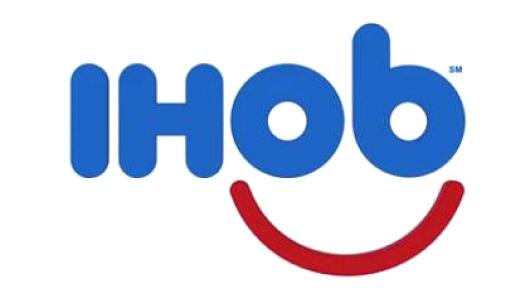
IHOP got quite the buzz over the weekend as it teased major changes to its iconic brand, including swapping the last letter in its acronym from a “P” to a “b.”
However, the company won’t be actually changing its name to “IHOb.” In fact, the whole thing was a marketing stunt introducing the restaurant’s new line of burgers, which the company hopes will lure in diners during lunchtime.
The campaign went viral on social media, garnering the commentary of fellow restaurant brands as well as celebrities. However, buzz may not matter if the brand can’t bump up its sales.
“Too many PR people and marketing professionals think of buzz as a real metric, and it doesn’t matter how many impressions you get, how many retweets, how much you drive the conversation, how long you are trending, if it doesn’t equate to sales,” Dan Hill, CEO of Hill Impact, told CNBC. “The real metric will be do they sell more burgers? Do they get more traffic? Do they get new people to come to their restaurants?”
Traffic has been on the decline for the pancake chain for the last 10 quarters and its same-store sales only recently saw positive growth for the first time in seven quarters.
While IHOP has been able to get customers through the door early in the morning and late at night, it hopes that these new burgers will lure in diners during the pivotal lunch hour.
“It’s trying to move into the lunch/dinner category, but that means that it will now have to blur its identity as a breakfast place,” Rosalind Chow, an associate professor of organizational behavior and theory at Carnegie Mellon’s Tepper School of Business, told CNBC via email. “That’s a difficult place to live as a company; you risk losing clientele who valued your old identity and not attracting new clientele with your new identity.”
“However, IHOP probably wouldn’t be doing this unless it needed to expand market share,” she said. “They need more bodies in the room than what breakfast/brunch can provide. So, they need to diversify their offering in some way.”
Lunch represents 33 percent of total food service industry traffic, according to The NPD Group. However, lunch sales have been in a decline over the last few years, as more workers eat their midday meal at their desks.
“Yes, it’s off brand, because people know [IHOP] for pancakes, but there are also opportunities to extend to other foods and increase the amount of times someone might come there on a monthly basis,” Eric Schiffer, chairman of Reputation Management Consultants, told CNBC.
Schiffer called the marketing campaign “click bait on steroids,” but praised it for garnering so much attention and free publicity.
“This was a brilliant marketing stunt that didn’t grossly undermine the credibility of IHOP and in the end will lead to people considering it for additional items and, at the same time, they got probably several hundred million dollars of free publicity,” he said.
However, IHOP’s marketing tactics didn’t impress Hill. He called the campaign deceitful for making it sound like the company was doing a full rebrand, when it was just gearing up to promote one product.
“It’s the same decor, same environment and same services,” he said. “Are [customers] really going to feel like there was much of a change?”
Customer expectations aren’t the only thing the chain has to worry about. IHOP is entering a highly competitive and crowded space with this new burger line.
Burger chains are fighting for customer loyalty and are discounting their food, swapping out frozen patties for fresh beef, adding unique ingredients between the buns, and even catering to vegetarians and vegans with meat substitutes.
IHOP’s line of burgers, in comparison, is pretty standard fare. New additions include a mushroom and Swiss topped burger, one with jalapenos and pepper jack cheese, and one covered in BBQ sauce and crispy onion rings.
Schiffer said he expects the brand will be able to innovate with new flavors once its burger line launches and customers begin to associate IHOP with lunch.
“I would not be surprised if over time IHOP began to inch into the market share of burger chains,” he said.























